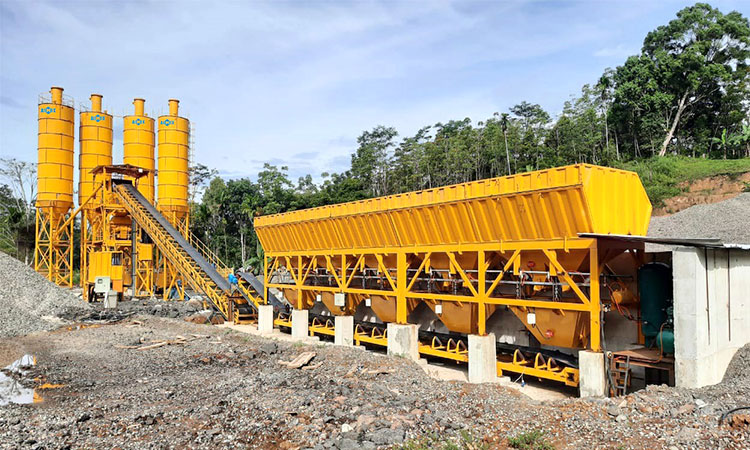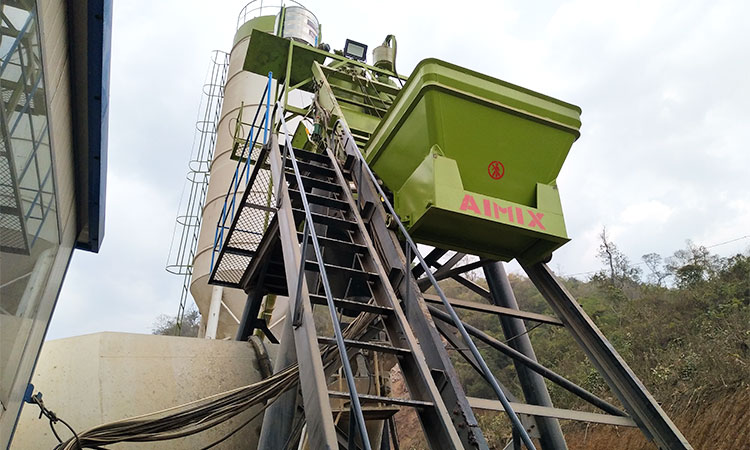The construction industry, once criticized for its environmental impact, is undergoing a transformative shift towards sustainability. At the forefront of this green revolution are batching plant manufacturers who have recognized the urgent need to reduce the carbon footprint associated with concrete production.
1. Embracing Eco-Friendly Materials:
One key aspect of sustainable concrete production lies in the materials used. Reputable concrete plant manufacturers are increasingly incorporating eco-friendly alternatives into their mix designs. This includes the use of supplementary cementitious materials such as fly ash, slag, and silica fume, which not only reduce the demand for traditional cement but also contribute to lower greenhouse gas emissions associated with its production.

2. Energy Efficiency and Renewable Energy Integration:
The energy-intensive nature of concrete production has long been a concern for environmentalists. Top batching plant manufacturers are addressing this by optimizing their concrete mixing plants for energy efficiency. This involves the integration of advanced control systems, the use of high-efficiency motors, and the incorporation of renewable energy sources, such as solar and wind power. By minimizing energy consumption, these manufacturers are making significant strides towards a more sustainable concrete production process.
3. Closed-Loop Water Management Systems:
Water is a precious resource, and its responsible use is a critical aspect of sustainable concrete production. Leading manufacturers are implementing closed-loop water management systems within their batching plants. These systems capture, treat, and reuse water, minimizing water wastage and reducing the environmental impact associated with extracting and processing fresh water for concrete production.

4. Carbon Capture and Storage Technologies:
Acknowledging the carbon footprint of concrete, which primarily stems from the production of cement, manufacturers are exploring carbon capture and storage (CCS) technologies. These innovative systems capture carbon dioxide emissions at the source, preventing them from entering the atmosphere. By investing in CCS, batching plant manufacturers are actively contributing to the reduction of greenhouse gas emissions, aligning with global efforts to combat climate change.
5. Recycled Aggregates and Circular Economy Practices:
To further enhance sustainability, leading batching plant manufacturers are championing the use of recycled aggregates for the wet mix concrete batching plant. Recycled concrete aggregates from demolished structures are reintegrated into new concrete mixes, reducing the need for virgin materials and diverting construction waste from landfills. This commitment to a circular economy not only conserves resources but also minimizes the environmental impact associated with the extraction and transportation of raw materials.
6. Life Cycle Assessment and Environmental Product Declarations:
Transparent communication about the environmental impact of concrete products is becoming increasingly important. Batching plant manufacturers are conducting comprehensive life cycle assessments (LCAs) and providing Environmental Product Declarations (EPDs) for their concrete mixes. This information empowers construction professionals and clients to make informed decisions, choosing materials with lower environmental footprints and contributing to a more sustainable built environment.
7. Collaborative Industry Initiatives:
Recognizing the collective responsibility to address environmental challenges, leading batching plant manufacturers actively participate in collaborative industry initiatives. These initiatives bring together manufacturers, contractors, architects, and researchers to share knowledge, exchange best practices, and collectively drive the industry toward more sustainable solutions.
Conclusion: Shaping a Sustainable Future for Concrete Production
In conclusion, the commitment of leading batching plant manufacturers to sustainable practices is reshaping the landscape of concrete production. Through the adoption of eco-friendly materials, energy-efficient technologies, closed-loop water management, carbon capture, and recycling practices, these manufacturers are paving the way for a more sustainable and environmentally conscious construction industry. As awareness of environmental issues continues to grow, the influence of these sustainable practices is set to extend beyond individual manufacturing plants, creating a ripple effect throughout the entire construction ecosystem and shaping a greener future for concrete production. View more details about batching plant here: https://aimixmachinery.com/dry-mix-concrete-plant/.